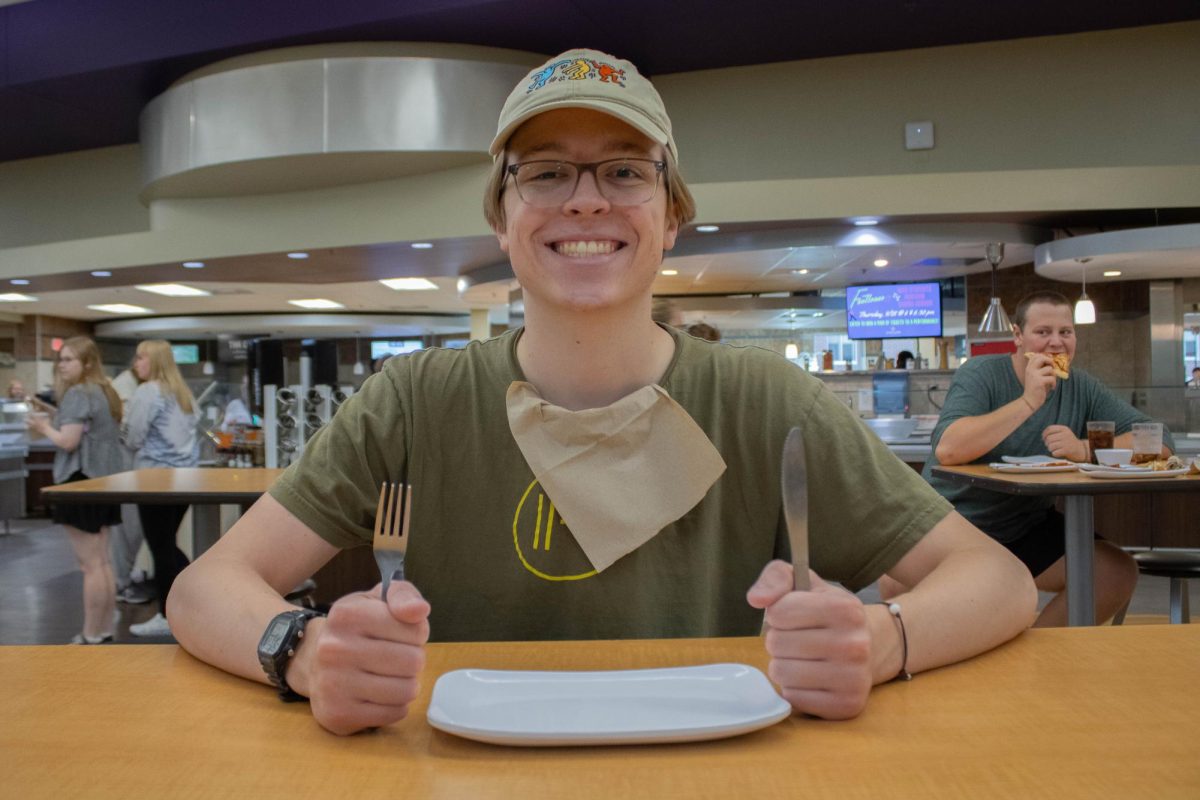Courtney Kowalke /Winonan
Winona State University’s Counseling and Wellness Services held a conversation about dealing with grief during the holiday season on Nov. 13.
“Healthy grieving involves moving back and forth between fully mourning our loss on the one hand and reengaging in life on the other,” said Eunie Alsaker of Counseling and Wellness Services.
“Remind yourself it is okay to have fun and to celebrate,” she said. “Grief does not demand that we are sad at all times.
What grief does demand is attention to our emotions. Laughing and finding joy in others or the season is all part of the process.”
Alsaker is a Licensed Independent Clinical Social Worker who has worked at Winona State’s Counseling Services since 2003. She works primarily in issues of grief and loss, anxiety, and stress management.
Attention to grief during the holidays is important to the Winona State campus. According to Alsaker, 21 percent of students in 2010 said they had lost someone important in the past four months.
Held in room 138 – or The Well — of the Integrated Wellness Complex, the presentation was attended by seven students.
“The upcoming holidays do not always feel like a ‘time of good cheer’ when you are grieving the loss of a loved one,” Alsaker noted.
Alsaker emphasized the importance of holiday rituals and traditions.
“Rituals tie us to the past, and the holidays hold more family rituals than any other time of the year,” she said.
In some cases continuing to practice traditions helps people deal with grief.
In other cases however, practicing traditions is more harmful than helpful. Sometimes we’re reminded too much of the person we’re grieving.
Alsaker said she has many suggestions for new traditions, “or ways to pause during the holidays and intentionally remember your loved one.”
Ideas include creating a memory book about your loved one with contributions from other family members, lighting a candle in honor of your loved one at the holiday meal, and taking the time to share stories about the person you lost with family and friends.
If you need to change holiday rituals, Alsaker suggests focusing on giving.
“Donate to your loved one’s favorite charity,” she suggested. “Work at a soup kitchen. Take a mission vacation over the holidays. Consider doing something totally different this year if that’s what helps.”
It is important to decide which holiday traditions are important for you and your family to continue and which ones you need to skip or alter, Alsaker said.
Alsaker also notes “[j]ournaling can be a valuable tool during our grief. There is no right or wrong way to journal, and the possibilities are endless.”
Writing about what certain experiences we expect to be difficult during the holidays can help us anticipate problems and deal with them when they arise.
Journaling can also help students consider how to carry their loved ones forward in their lives and serve as a reminder to take care of themselves through their grieving process.
“Pay attention to self-care,” Alsaker noted. “Grief affects us on all levels, so we must respond on all levels. Focus on the basics – sleep (grieving bodies need extra sleep), diet (there will probably be an excess of unhealthy food and beverages available), and exercise.”
She also suggests balancing social opportunities, taking time to grieve in private while remaining connected with others.
When considering where you are at in the grieving process, Alsaker suggested students ignore the five stages of grief model.
“Everyone grieves in different ways,” Alsaker said. “There are no rules, nothing that says what you should or shouldn’t do.”
She reminded students to reflect on their favorite memories or specific people that have helped assuage grief in the past and also to consider other family members and friends.
“It’s important not to forget other people dealing with the same grief, especially other people dealing with grief in different ways,” Alsaker said.
“Just because they’re able to smile or laugh about things more than you doesn’t mean they’re not feeling the same sense of loss.”
Alsaker reminded students to prepare for grieving after the holidays as well.
“Sometimes the holidays are actually helpful,” she said. “There are more people and activities around. So try to have something to look forward to when you’re back at school during January and February.”
Grief and the holidays is a subject I relate to on a personal level. In 2008, my mom died 17 days before Christmas. It wasn’t the first close death I experienced, and it isn’t even the most recent, but it is the biggest. I speak from experience when I say spending the holidays without someone so important to you is weird. There is no better word for the feeling. It’s just weird.
Grieving is a year-round process. Often it feels like taking you take two steps forward and one step back. There are even worse days where it feels like you take one step forward and two steps back.
You can’t stop moving, but it’s harder to remember that around the holidays when your traditions don’t feel right, when something that should be familiar gives you pause.
I’m not an expert on dealing with grief – that’s what Counseling and Wellness Services are here for – but I want to let those of you dealing with loss this holiday season that it can be managed.
In Alsaker’s words, “Moving through grief is about reorienting ourselves to the world. We don’t return to normal, we create a new normal.”
Contact Courtney at [email protected]




























































